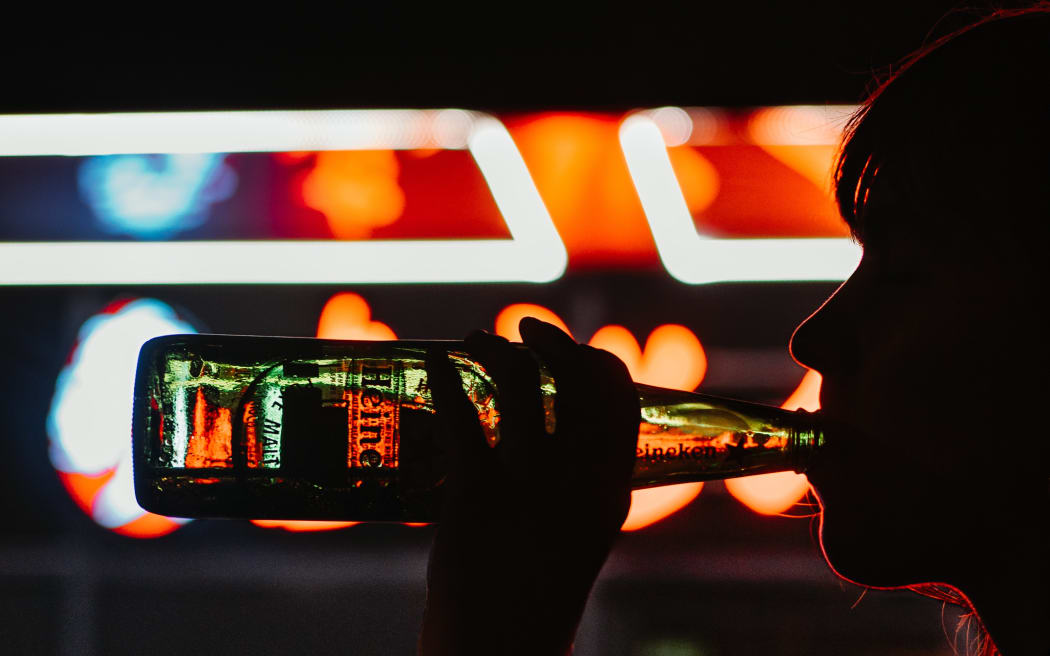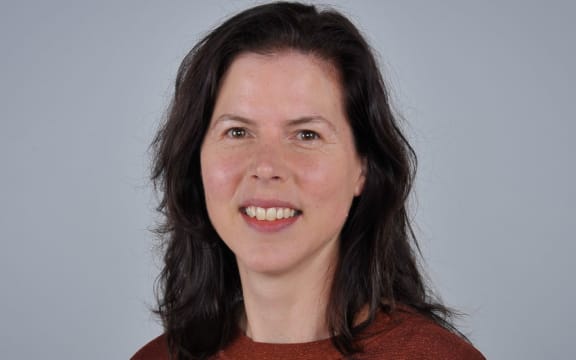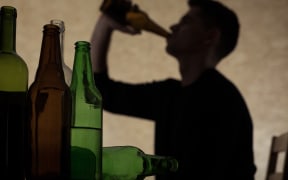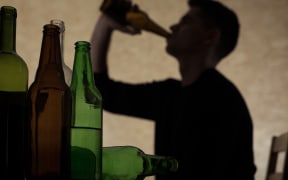
Photo: Unsplash
Fewer teenagers drink alcohol than 20 years ago, and it may be because they are spending more time online or at home, and less time wandering the streets or sitting in parks with their friends.
University of Otago research also indicated there was less social stigma associated with turning down a drink, and teens were more aware of the health risks of alcohol - but a significant proportion are still binge-drinking.
The report, published in Drug and Alcohol Review on Thursday, compared contemporary teenagers' social lives and attitudes to alcohol to a similar group interviewed 20 years ago.
It sought to understand why the percentage of secondary school students aged 13-18 who reported ever drinking alcohol dropped from 82 percent in 2001 to 55 percent in 2019, and the percentage reporting binge-drinking in the past month fell from 42 percent to 22 percent.
Public health researcher Dr Jude Ball said researchers interviewed 64 14- to 17-year-olds from a Wellington secondary school last year, and compared their responses with similar interviews with teens conducted in 1999-2001.
"There were some really striking differences between what was going on 20 years ago and today in terms of the way that young people were socialising and the role of alcohol in young peoples' social lives," she said.

Dr Jude Ball. Photo: University of Otago / Supplied
"Twenty years ago drinking and partying seemed to be an almost compulsory part of social life. If you didn't drink then you were really outside of teen norms, whereas today there seem to be lots of different ways of being a teen. Some friend groups were really into alcohol and that was a big part of their social life, but for others they had really active social lives that didn't involve alcohol or any other substances."
Ball said some teens were not drinking alcohol, but others still drank a lot.
"The young people who are drinking are not drinking any more sensibly than young people 20 years ago. The level of heavy drinking among drinkers has remained about the same, so the style of drinking among young people who do drink really hasn't changed.
"There are still a subset of high school students who are going really hard out with drinking and other substances, and they do need support to protect them from alcohol harm."
Many different factors appeared to be driving the overall drop in alcohol consumption, she said.
"What we see is that young people are spending less face-to-face time with their friends, and it seems like social media's a big part of that because it's easier for young people to be in touch where they're not physically together," she said.
"But other aspects of that is that young people have less independence at a young age and they're more closely supervised, so what we see is that young people now more often socialise at home. Even when they are with their friends it's usually at someone's house rather than roaming the streets or driving round in cars or drinking at the park.
"Changes in parenting are part of it, and I think there is greater risk awareness around alcohol, both among parents and among young people themselves."
Ball said when she started the research she had assumed external pressures were behind the decline in teen drinking.
"But in talking to young people it's really clear that their own attitudes to alcohol have changed. It's not like parents or society is imposing change on them, it's coming from young people themselves," she said.
"Part of that is that it seems that alcohol has negative connotations for this generation. So they often frame drinking as a coping mechanism. Both young people who drink and young people who don't described alcohol as a way of coping with anxiety or stress or trauma, and I think that puts a negative and less glamorous tinge to alcohol than what young people had 20 years ago."
Young people were also well-educated about the negative health effects of alcohol, and that was a particular turn-off for those who were focused on high achievement in sport and academia, Ball said.
She warned some of the factors reducing alcohol consumption among some teens were not entirely positive.
"We went into this study wanting to understand what had driven drinking down with a view to increasing whatever those factors were to drive drinking down even further, but in fact a lot of the drivers of youth drinking-decline, like less independence, less face-to-face time with friends, more pressure to succeed, they're not necessarily positive for young people's wellbeing overall," she said.
"So I think if we do want to drive alcohol harm down further we need really targeted measures like marketing restrictions on alcohol, like increased taxation."

Teenagers 20 years ago were more likely to use alcohol. Photo: 123RF
Hooking-up over social media, not drinks
The research said to some extent digital media had replaced drinking as a means of facilitating teen romances. It said the interviewees indicated there was less social stigma associated with not drinking than was the case 20 years ago.
"Drinking was still perceived as cool among certain friend groups, but different groups had different values, and social mixing beyond friend groups was more limited than in the earlier cohort. There was no clear consensus about who the 'top' group were in the contemporary cohort, but non-drinking groups were among those seen as popular," the report said.
Ball said though fewer teens were drinking, the figures indicated New Zealand teens were more likely to binge drink than those in countries including Australia and the US, and a significant number also had drinking problems.
"The proportion of young people who are struggling and having a hard time, and often that includes substance abuse, that proportion hasn't really gone down. So I think frontline workers would still say that there are young people experiencing alcohol harm and that is still a really important public health priority."






